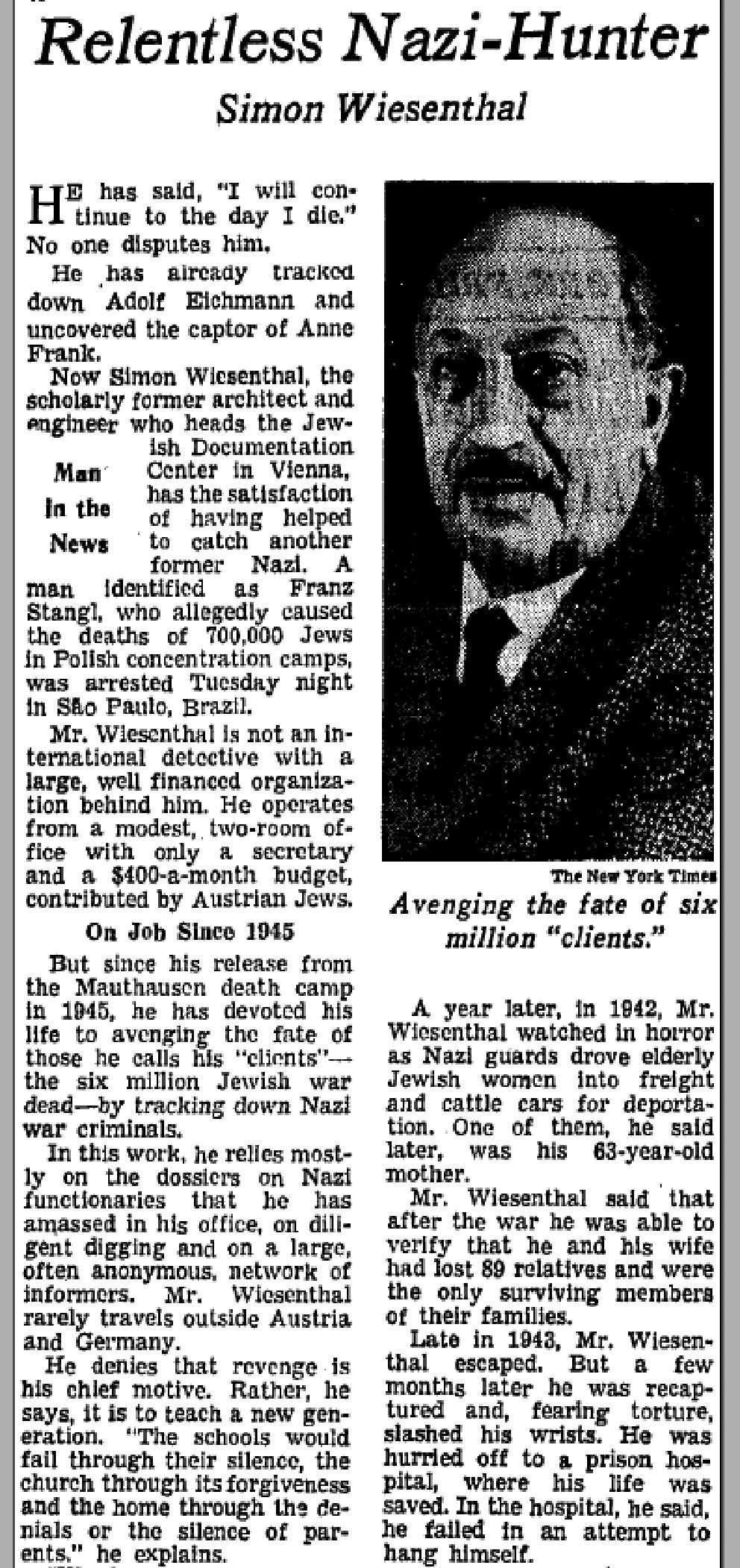Nazi Hunting: Simon Wiesenthal
“When history looks back I want people to know the Nazis weren't able to kill millions of people and get away with it.”
—Simon Wiesenthal
Simon Wiesenthal, a Holocaust survivor, dedicated his life to raising public awareness of the need to hunt and prosecute Nazis who have evaded justice.
After liberation, Wiesenthal worked for the War Crimes Section of the United States Army, and in 1947 he opened the Jewish Historical Documentation Center in Austria.
For decades, Wiesenthal pressured Western governments to locate and prosecute escaped Nazi offenders and also offered leads that sometimes led to their extradition. Among those about whom Wiesenthal provided leads for war crimes investigators were
- Adolf Eichmann, administrator of the “Final Solution”
- Franz Stangl, commandant of the Sobibor and Treblinka killing centers
- Karl Silberbauer, the Gestapo (German Secret State Police) agent who led the arrest of Anne Frank and her family.
Wiesenthal also provided information prompting the discovery that Hermine Braunsteiner Ryan, a former concentration camp guard, was living in New York as an unassuming housewife. Braunsteiner Ryan was the first Nazi criminal to be extradited from the US.
Wiesenthal's tenacity and unflagging passion for tracking down perpetrators inspired survivors of the Holocaust and other genocides to believe that justice can and will prevail, even with the passage of time. He died in September 2005 after a lifetime of vocal activism.

Critical Thinking Questions
- Learn more about Wiesenthal's experiences during the Holocaust.
- Why did Wiesenthal still pursue Nazi war criminals so many years after the Holocaust?
- Is a perpetrator ever too old to prosecute? Is it fair to the victims and their families not to prosecute?
- Does it serve justice to try some perpetrators when so many others have gone free? Is it ever too late for accountability?

